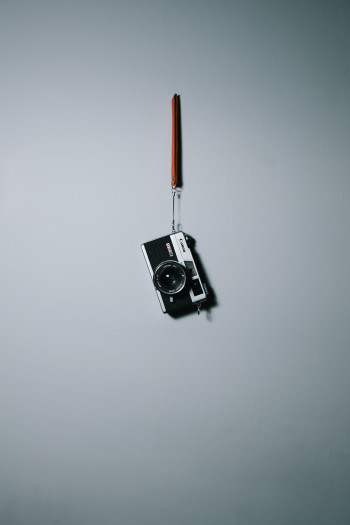
(Credit: littlevisuals via Pexels)
A fake conflict photographer using the name Eduardo Martins sold stolen photos to news outlets like Getty Images that ended up in the Wall Street Journal, France’s Le Monde, among other venues, Mashable reported. Martins claimed he was a war and conflict photographer, but his ruse was recently exposed when Brazilian photographers and BBC Brazil investigated his “work” and discovered the images were stolen from other photographers who were actually in the areas where Martins claimed to be working.
Not only were the photos not his, Martins also lifted photos of a British surfer and claimed they were of him. As the investigation into Martins began, he deleted his social media account (his Instagram account had more than 125,000 followers) and contact phone number, the BBC Brazil reported, claiming he was spending the year living in a van in Australia. The fake photographer essentially dropped off the map before his real identity could be discovered.
Now, news outlets that published photos Martins claimed to have taken are scrambling. “His fake images of conflict in Gaza, Syria, and Iraq were delivered to agencies such as Getty Images, ZUMA, and NurPhoto and published in The Wall Street Journal, Le Monde, The Telegraph, and BBC Brazil,” Mashable reported.
For example, one photo that was published in the Wall Street Journal but credited to Martins, was originally taken by another photographer and flipped horizontally. Further, the caption was changed to misidentify where the original photo was taken.
The actual photographer, Daniel C. Britt, told Mashable, “Like I said to other journalists, I’m just disappointed that Eduardo Martins bastardized the photo captions and gave people yet another reason to distrust the news. Each photograph was part of a specific time and place.” Britt told iMediaEthics by e-mail, “I have not heard from the fake photographer nor have I heard from any of the media outlets that used his manipulated version of my images.”
Britt said he plans to flag the correct photos to the news outlets that published the altered version of his work and may pursue legal action against the fake photographer:
“If I don’t hear from them next week Ill write each one and clarify where my body of work-for-sale can be viewed and how to contact me if there is any question as to whether or not work coming through their door is mine.
“Instead of suing I was thinking I would just ask those publications to do me a solid and give me an assignment contract for every fake photo they’ve run. It would work out for both of us this way. I could continue publishing my stories and photo essays without being distracted by legal nonsense.”
The Wall Street Journal has posted a correction and removed that photo. The correction reads: “A photograph purported to be taken May 17, 2016, of Free Syrian Army fighters in Azaz, Syria, has been removed from this article because ZUMA Press is unable to authenticate aspects of the photo. (Sept. 6, 2017).” iMediaEthics has written to the Wall Street Journal to ask how many photos credited to Martins it published and how many corrections it will post.
The BBC unpublished a profile they did of Martins after realizing he was a fake. At the top of its article about Martins’ deceptions is a note reading (according to Google Translate),
“On July 7, 2017, BBC Brasil published a text presenting photos and videos that would be written by a Brazilian who presented himself to his more than 100,000 followers on the Instagram as Eduardo Martins, a UN photographer. After the publication of the content, suspicions arose not only about the authorship of the images sent but also about the true identity of Martins. BBC Brazil began investigating the case a month ago and, little by little, the elements of a story built for two years began to crumble. Faced with the suspicions and the risk of copyright infringement, the original content was taken off the air. We apologize to our readers for their mistake. The case will strengthen our verification procedures. Know the case.”
BBC Brazil reported that Martins approached BBC Brazil in June and “offered his story and his photos for free.” That said, BBC Brazil noted that he wouldn’t talk on the phone, only sending messages through WhatsApp, because he claimed he was in Mosul, Iraq. Martins also claimed he worked with the UN in refugee camps but the UN denied it to the BBC.
iMediaEthics has written to the BBC to ask if the profile they unpublished was only on BBC Brazil in Portuguese or if it was published in English on the BBC or broadcast.
Getty Images and ZUMA Press removed all of Martins’ photos while it investigated, Getty told the BBC. NurPhoto, one of the photo agencies that published content from Martins, told Mashable it removed all of Martins content and complained to the Italian police. “After careful consideration of all facts reported in the news, considering that, as of now, it seems impossible to get hold of Mr. Eduardo Martins and seeing that his personal website and social media profiles are currently offline, we fear that our agency may have been victim of a fraud perpetrated by someone that is not the author of his photos and whose conduct is causing serious reputational damages to our company,” CEO Manuel Romano told Mashable.
ZUMA’s Scott Mc Kiernan told iMediaEthics it didn’t publish any pictures from the fake photographer, but that it represents NurPhoto, which did. “We took all his images down, we noticed they were lower res and unless iPhone original or a mugshot, do not usually carry Lo Res,” he wrote, adding that he wasn’t sure “what legal actions we or any media could or can do.” Mc Kiernan questioned how the fakery happened and said ZUMA “reviewed our workflow and added more checkpoints.”Further, Mc Kiernan commented that part of the problem is media being willing to use material provided for free.
iMediaEthics has written to Getty and NurPhoto to ask how many photos they removed.




